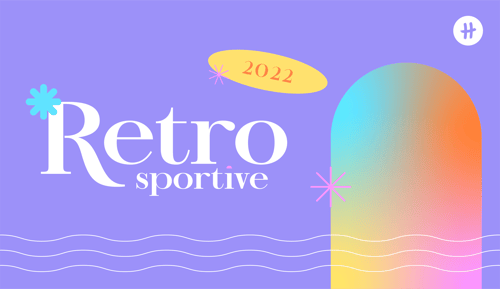
In recent years, the digital transformation of the Human Resources (HR) sector has been rapidly advancing, known as HR tech in the UK. Big data, Artificial Intelligence (AI), Virtual Reality (VR), and decision-making algorithms intertwine with new practices like four-day workweeks, asynchronous work, and workations, providing us with a plethora of innovations each year. Let's explore the key HR trends to closely monitor in 2024.
In a recent survey conducted by Slack and OpinionWay on workplace trends, generative AI, training, and skills development emerge as the primary challenges HR professionals will face in 2024.
1- Integrating AI into all functions
Fifty percent of French employees express a desire to use AI for repetitive tasks with low added value or simply to save time. However, nearly half of them are not yet using AI in their work. The challenge for HR functions is to facilitate the development of skills in this technology, not only to supervise its usage but also to raise awareness of the associated risks.
The motto for 2024 is to work intelligently.
Naturally, AI enables HR functions to automate certain processes, saving valuable time for HR professionals, particularly in recruitment tasks such as improving processes, preselecting candidates, and testing and evaluating skills.
2- Flexibility for Everyone, Beyond Borders 🌎
Remote work has become a fixture in the corporate landscape, ranging from 100% telecommuting to 100% in-person attendance, with various organizations finding their optimal balance. Approximately 30% of remote workers express a desire to work from abroad, a growing trend known as "workation." However, challenges related to remote work abroad, including social protection, taxation, and working conditions, may arise.

Also, let's keep in mind that flexibility extends beyond remote work: some roles are not conducive to telecommuting. Solutions like the four-day workweek or additional leave exist to ensure equality among all workers.
3- Employee experience and benefits as tools against inflation
According to the 2023 Well-Being at Work Observatory, 62% of employees consider leaving their current jobs. Companies struggle to retain and attract talents, with a shift in the power dynamic between employers and employees/candidates.
To remain desirable, especially in times of inflation, companies are expected to focus on employee well-being, engagement, benefits, and favorable working conditions.
4- Continuous development and training to retain talent
The rise of "slashers" – individuals with multiple professional activities – highlights the need for continuous training and professional development, particularly for younger workers who are more likely to change roles if they feel stagnant.

Strategies such as offering short and targeted learning resources, both in-person and online, and fostering a culture of self-learning can help, even in high-workload environments.
5- Concrete commitment to diversity, inclusion, and equality
Companies working towards improving diversity and inclusion stand to gain by stimulating innovation, achieving balanced decision-making, enhancing their reputation, and attracting and retaining talent.
The global Gallup report indicates that a better workplace culture and engagement would improve the employment experience for 41% of respondents.
6- Data-driven governance
HR functions have access to numerous tools for data-driven decision-making, from demographic data for recruitment decisions to performance metrics for promotions and salary decisions. Regular analysis of these data sets is crucial for informed decision-making.

7- Prioritizing soft skills (especially in the era of AI)
Recognizing that a talent's worth goes beyond a CV or diploma, companies embracing a skills-based approach have an advantage. Soft skills such as adaptability, curiosity, and quick learning are increasingly valued, especially in the age of algorithms and AI.
8- Adapting to climate change
Acknowledging climate change's impact on well-being and productivity, companies can take action through awareness campaigns, flexible work policies during extreme weather conditions, sustainability policies, and partnerships with environmental organizations.
In summary, the year 2024 emphasizes learning, equality, ecology, and technology. In a competitive talent landscape, implementing straightforward solutions such as local partnerships, workplace physical activity solutions, and fostering a culture of self-learning can make a significant impact.

B2B Content Marketer @ Sport Heroes



